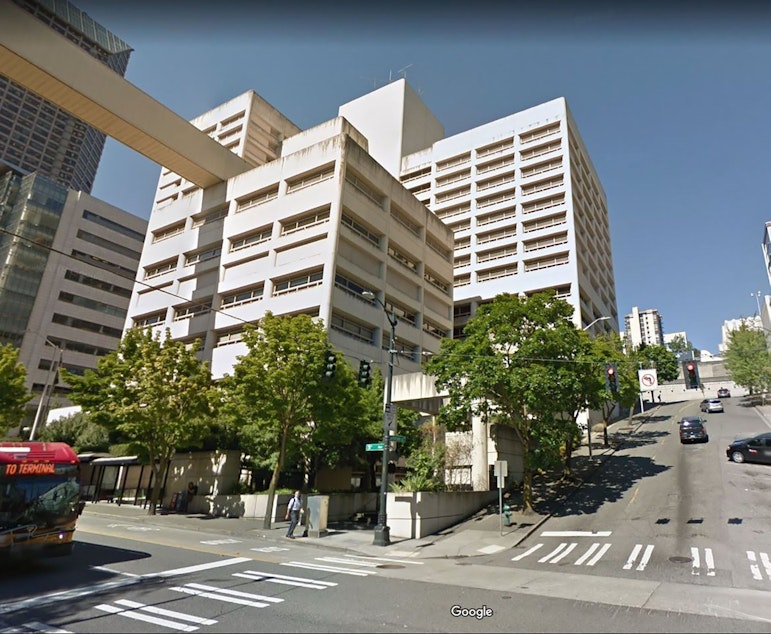Proposed downtown Seattle makeover, mental health levy, and more: King County Executive's annual address

In his annual address Tuesday, King County Executive Dow Constantine told councilmembers the state of the county is strong.
He struck an optimistic tone about the possibilities of the future. But he also acknowledged the continuing challenges facing the county.
Constantine touched on the homelessness crisis, public safety, the environment, and the fentanyl crisis in his speech.
He urged the state legislature to act to remove a 1% cap on property taxes, saying the county will be forced to make budget cuts if they can’t raise more revenue.
He also called for support of a levy to create new behavioral crisis centers.
“There is currently no walk-in urgent care clinic in King County for a person in mental health or addiction crisis,” Constantine said. “All too often, there’s the emergency room, there’s the jail or — as we’ve all seen — there’s the street.”
Constantine said providing crisis care and treatment beds is not only the right thing to do, but it’s the smart thing to do as jails and hospitals remain full, and the homelessness crisis continues.
Sponsored
King County voters will decide on the property tax levy next month.
If passed, it could raise as much as $1.25 billion over nine years, and fund five new crisis centers around the county, as well as investing in the workforce and helping to replace lost long-term treatment beds.
Redeveloping county sites downtown
Constantine also took the opportunity Tuesday to launch an initiative that would reimagine the county’s government building campus, spanning multiple blocks in downtown Seattle.
Constantine’s "civic campus" plan centers on an area near Pioneer Square that includes the county jail, courthouse, and administrative buildings.
Sponsored
It envisions a re-designed zone that not only houses local government, but comprises space where people can live, work, dine and visit.
"On some of the most valuable real estate in this entire quadrant of the country, we have a 9-to-5 workplace, rather than a 24-hour neighborhood. We have a chance to rethink and remake this vast urban tract in light of what it means to be a city today,” Constantine said.
Constantine added that the project would take years to design, plan, and execute, but he’s eager to start now.
He said Sound Transit is considering a shuttered administrative building as the site of a new light rail station.
If selected, Constantine is proposing to the council that the county keep the land and allow Sound Transit to build their station below, jump-starting new development in the area.
Sponsored
Constantine did not give an exact timeline or cost estimate for the redevelopment.




